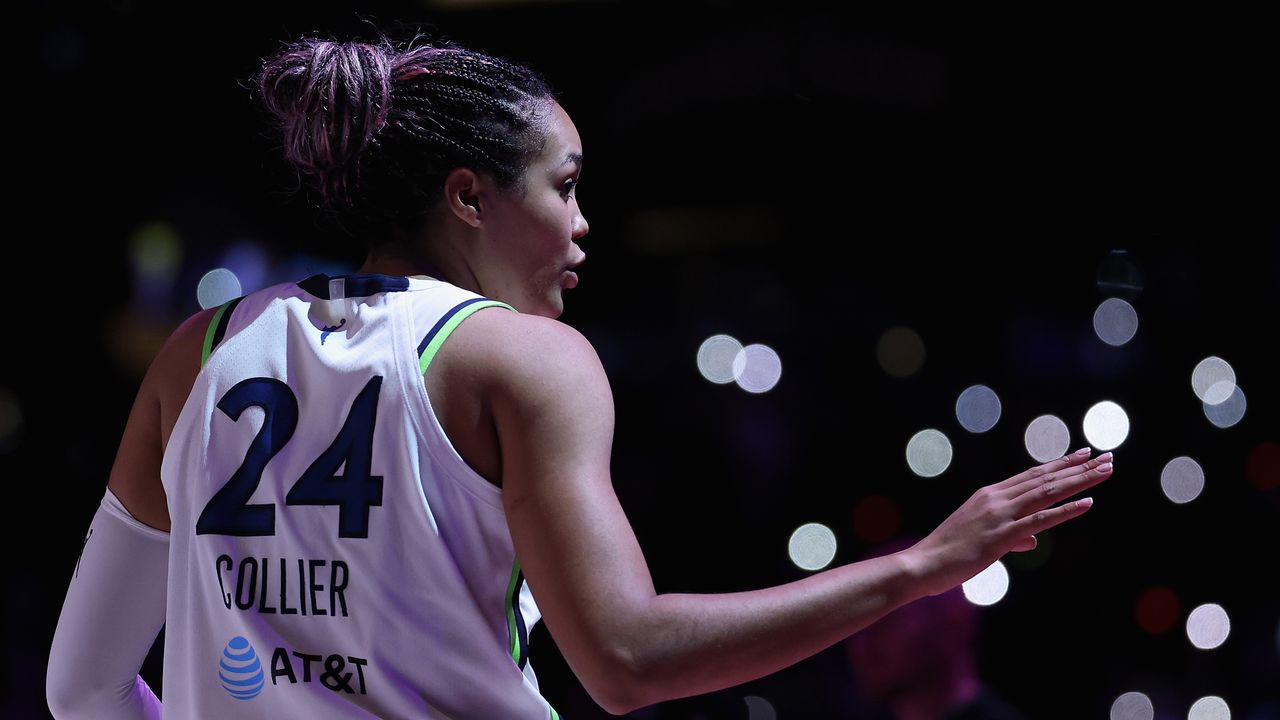The smartest turn in Collier’s speech was to invoke the names of Clark, Reese, and Bueckers—three players with disparate and sometimes misaligned fan bases—pitting Engelbert against not only the players but the world. Her comments about Clark got the most attention, as they were surely designed to. Shortly after Collier spoke out, Engelbert said in a statement that she was “disheartened” by Collier’s characterization of their conversation, though she didn’t deny anything specific. Then, in a press conference before the start of the W.N.B.A. Finals on Friday, Engelbert pushed back against Collier’s description of her comments about Clark needing to be “grateful.” “Obviously, I did not make those comments,” Engelbert said.
Except it wasn’t obvious. That, after all, is the way many people in leadership positions in sports—and especially in the N.B.A., which owns a substantial portion of the W.N.B.A.—talk about women’s professional leagues for years, justifying low salaries and poor playing conditions. It sounded plausible because it was plausible. And Clark’s fans, who have often noted the exceptionally high level of physicality directed at Clark and who’ve been aghast at the league office’s reluctance to single out her unique star power, had good reasons to believe that the league was self-sabotaging. After Collier’s comments, Clark was one of the many players who backed her up. “I have great respect for Phee,” Clark said, of Collier, “and I think she made a lot of very valid points.” Clark pointed out that the introduction of name, image, and likeness (N.I.L.) rights in college sports has made it possible for players to cultivate huge followings that they can then carry over into the W.N.B.A.—not the other way around.
Collier said that league leadership, in an effort to avoid accountability, has tried to “suppress everyone’s voices by handing out fines.” She continued, “I’m not concerned about a fine. I’m concerned about the future of our sport.” That’s when it became clear that Collier wasn’t lighting a match. The match had already been lit; smoke was going up. She was sounding the alarm before it was too late, and showing herself to be the kind of person who could lead the way out.
Collier, as it happens, is not just a perennial M.V.P. candidate; she is a vice-president of the players’ association—and a co-founder of Unrivaled, a three-on-three basketball league that competes during the W.N.B.A.’s off-season. (Her husband is the current president.) In 2026, roughly a third of W.N.B.A. players will compete in it. Unrivaled was not meant to challenge the W.N.B.A.’s status as the world’s premier basketball league; it sometimes had the feel of an exhibition, despite being somewhat successful. (The glitziest stretch last season was a one-on-one tournament, which Collier won.) But it does offer more money: this year, Unrivaled paid players an average salary of two hundred and twenty thousand dollars—close to the top salaries in the W.N.B.A. It also offers players equity, along with better amenities, perks, and an aggressive television deal.
It also gave players a place to come together and to compare notes. The W.N.B.A. is not like other leagues, and one of the things that sets it apart is the strong sense of unity among its players. That is partly a result of the nature of women’s sports, in which playing professionally has been, at times, a kind of inherent activism—particularly in the W.N.B.A., where a majority of players are Black and many players openly identify as L.G.B.T.Q. It was hardly a surprise when players and coaches lined up to offer Collier their support.
By conventional metrics—arguably the ones by which a commissioner is judged—the W.N.B.A. has never been in a better place. Even as Collier spoke, the league office was circulating news of yet another television-rights deal, this one with Versant, to present games on USA Network. More games will air on a host of networks as part of a $2.2-billion contract. Ratings are up, even though Clark, who is the sport’s biggest draw in terms of viewership, only played in thirteen games all year. Game attendance broke records this season. Engelbert, who had been the first female C.E.O. of Deloitte, has done the job that the N.B.A. had hired her to do in 2019. Team valuations, many of which had been eight figures last year, are now pushing half a billion dollars, and expansion fees are pegged at two hundred and fifty million.
